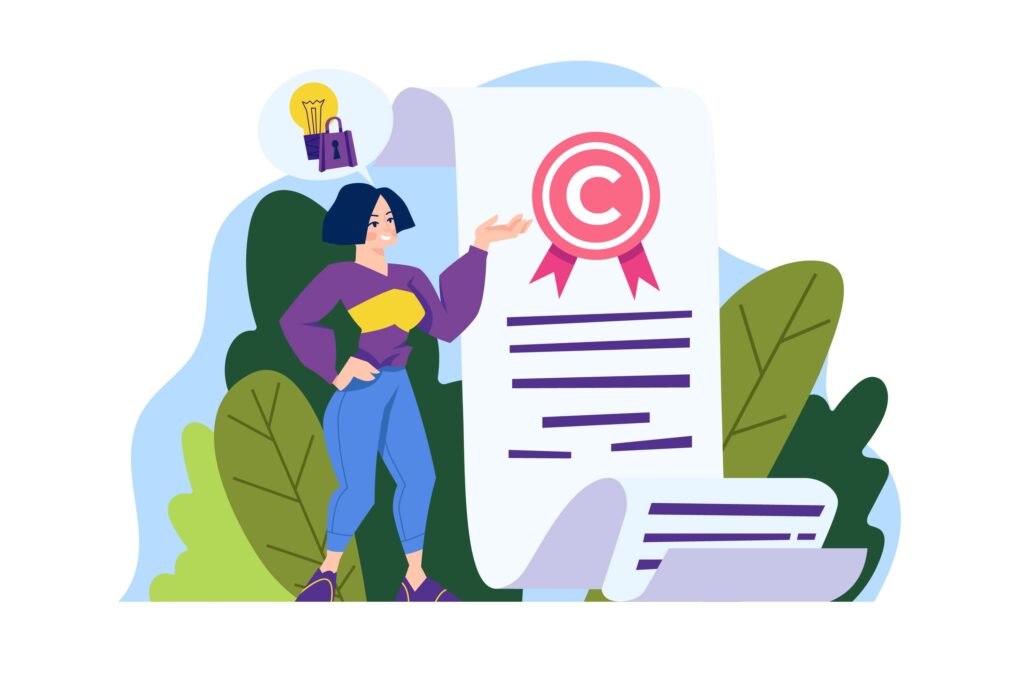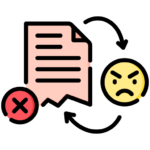Copyright
Get Quote Instantly in a Minute

Overview
Copyright registration is a crucial step in protecting your creative works, ensuring that you have legal ownership and exclusive rights to your intellectual property. Below, we provide an overview of the copyright registration process, including the procedure and documents required to safeguard your creations.
Procedure for Copyright Registration

Assessment

Application Preparation

Submission

Review and Approval

Monitoring and Renewal
Documents Required for Copyright Registration
- Title of the Work - A clear and descriptive title for the creative work you are seeking to copyright.
- Authorship Information - Details about the author or authors of the work, including their names, addresses, and any pseudonyms used.
- Publication Details - Information about when and where the work was first published, if applicable.
- Copyright Owner Information - If the copyright owner is different from the author(s), their contact information and relationship to the work.
- Copies of the Work - Depending on the type of work, you may need to submit copies or samples along with your registration application. These copies should represent the work as it was published or created.
- Power of Attorney - If you are using legal representation, a power of attorney document authorizing your attorney to act on your behalf in copyright matters.
Vakkta Assurance
Verified Lawyers
All the lawyers are thoroughly vetted with valid Bar Council ID
Fixed Quotes
No price-hassles later
Dedicated Case Manager
A personally-assigned Case Manager for timely updates of your case proceedings
100% Confidentiality
Your personal details are kept absolutely confidential
Frequently Asked Questions
Yes, many copyright offices allow for the registration of multiple works under a single application, which can save time and money for creators with multiple works to protect.
The cost of copyright registration varies depending on the country and the type of work being registered. Fees may also differ for individual applicants and corporate entities.
Yes, you can register a copyright for published works. However, it is advisable to register as soon as possible after publication to ensure timely protection.
Copyright registration provides the copyright owner with the exclusive right to reproduce, distribute, perform, display, and create derivative works based on the original work.
The duration of the copyright registration process varies depending on the copyright office and workload. In some cases, it may take several months to receive a registration certificate.
Copyright registration provides legal evidence of ownership and exclusive rights to your creative work. It strengthens your ability to enforce your rights against infringement and provides certain benefits in legal proceedings.
Copyright protection extends to a wide range of creative works, including literary works, artistic creations, musical compositions, software code, architectural designs, and more.
No, copyright protection exists automatically upon the creation of an original work fixed in a tangible form. However, registration is recommended to enhance the protection of your rights and provide additional legal benefits.
You can register your copyright at any time, but it is advisable to do so as soon as possible after the creation or publication of your work. Early registration can strengthen your legal position in case of infringement.
In most countries, copyright protection lasts for the life of the author plus an additional period, typically 50 to 70 years after the author's death. The duration may vary depending on local copyright laws.
Get Started with your free trial Consultation
Our mission is to make the legal world more accessible and affordable for everyone.


